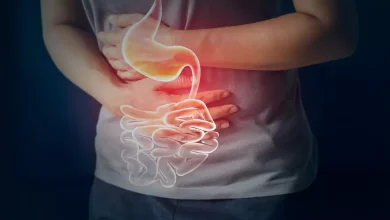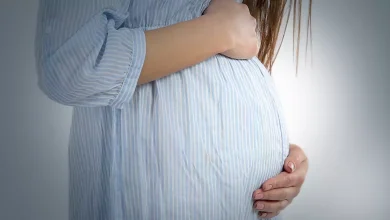All about Extrauterine Pregnancy

What is Extrauterine Pregnancy?
Also known as ectopic pregnancy, it is a condition where the pregnancy occurs outside the uterus. It happens when a fertilized egg implants in an area its growth is not supported. An extrauterine pregnancy mostly occurs in the fallopian tube (a structure that connects your ovaries and uterus) of a pregnant woman. These pregnancies rarely occur in the ovary, abdominal cavity, or cervix. In certain cases, it can be life-threatening especially if the fallopian tube breaks.
What are the Types of Extrauterine Pregnancy?
There are three types of extrauterine pregnancy including:
Tubal pregnancy: It is the most common type of ectopic pregnancy and a large part of ectopic pregnancies are tubal pregnancies. Here the pregnancy happens when the egg has implanted in the fallopian tube.
Non-tubal ectopic pregnancy: It consists of two percent of all ectopic pregnancies where the pregnancies happen in areas including the ovary, the cervix, or the intra-abdominal region.
Heterotopic pregnancy: It’s a rare type of extrauterine pregnancy where a fertilized egg implants inside the uterus and another one implants outside it. It is mostly detected before the intrauterine pregnancy, mainly because of the painful nature of ectopic pregnancy. If human chorionic gonadotropin levels continue to grow after the ectopic pregnancy has been eliminated, the pregnancy inside the womb may still be operable.

What are the Symptoms of Extrauterine Pregnancy?
The symptoms of extrauterine pregnancy may include:
- Bleeding of the Vagina.
- Pain in the pelvis, lower abdomen, and lower back.
- Dizziness
- Constantly feeling weak.
If the fallopian tube is damaged, the pain and bleeding can be quite serious and cause extra symptoms such as:
- Fainting.
- Low blood pressure (hypotension).
- Pain in the shoulder.
- Rectal pressure.
- Problems in the movements of the bowel.
What are the Causes of Extrauterine Pregnancy?
Extrauterine pregnancy mostly occurs when a fertilized egg gets mired on its way to the uterus, usually because the fallopian tube is ruptured by inflammation or is deformed. It may also happen because of hormonal imbalances or abnormal development of the fertilized egg.
Some other causes of extrauterine pregnancy may include:
- Scar tissue, adhesions, or inflammation from previous pelvic surgery.
- Damage in the fallopian tubes, because of a sexually transmitted infection (STI).
- Being born with an abnormally shaped fallopian tube.
- A growth blocking the fallopian tube.
What are the Risk Factors of Extrauterine Pregnancy?
Some common risk factors of an extrauterine pregnancy can cause your fallopian tube to burst open. Without treatment, the ruptured tube can lead to life-threatening bleeding. may include:
Former extrauterine pregnancy: In case you had extrauterine pregnancy before, the chances of having another are more.
Inflammation or infection: Sexually transmitted infections, like gonorrhea or chlamydia, may lead to inflammation in the tubes and other nearby organs, and your risk of an extrauterine pregnancy increases.
Fertility treatments: If you had in vitro fertilization (IVF) or related treatments, then you are more likely to have an extrauterine pregnancy. Infertility itself may also increase your risk.
Tubal surgery: Surgery to treat a closed or ruptured fallopian tube can increase the risk of extrauterine pregnancy.
Choice of birth control: Some birth control methods such as using an intrauterine device (IUD) or tubal ligation may increase your risk if you become pregnant after these procedures.
Smoking: Smoking cigarettes just before you get pregnant or while pregnant can increase the risk of such a type of pregnancy.
What are the Complications of Extrauterine Pregnancy?
The main complication of extrauterine pregnancy includes the fallopian tube bursting open. If not treated promptly, the ruptured tube can cause life-threatening bleeding.
How Extrauterine Pregnancy is Diagnosed?
The following tests are useful to diagnose extrauterine pregnancy :
Urine test: Here a sample of your urine is put on a test strip which is further checked to diagnose if you have extrauterine pregnancy.
Blood test: A sample of your blood is taken to examine how much of the hormone human chorionic gonadotropin (HCG) you have in your body. Your body creates HCG only during pregnancy. A low amount can be a sign of an extrauterine pregnancy because HCG levels considerably augment when a fertilized egg implants in your uterus.
Ultrasound exam: Here sound waves are used to create an image of your body’s internal structures which helps your doctor to see where the fertilized egg has implanted.
What are the Treatment Options Available for Extrauterine Pregnancy?
The treatment of extrauterine pregnancy is based on your symptoms and when the ectopic pregnancy is discovered. Generally, treatment options include medication, laparoscopic surgery, or abdominal surgery.
Medication: A medication called methotrexate is given during early extrauterine pregnancy to stop unstable bleeding. It is given by injection. The diagnosis of ectopic pregnancy must be sure before getting this treatment.
Laparoscopic procedures: Some ectopic pregnancies are treated through two laparoscopic surgeries including salpingostomy and salpingectomy. During these procedures, a tiny incision is created in the abdomen, adjacent to the navel. Then a thin tube equipped with a camera lens and light (laparoscope) is used to see the tubal area. In a salpingostomy, the extrauterine pregnancy is detached and the tube gets healed by itself. In a salpingectomy, both the ectopic pregnancy and the tube are removed.
Abdominal surgery: If your condition is causing heavy bleeding, then you may have to go for an emergency abdominal surgery which is done laparoscopically or via an abdominal incision (laparotomy).
Living with Extrauterine Pregnancy
Sadly, in an extrauterine pregnancy, the fetus cannot survive. When this type of pregnancy occurs, women feel severe abdominal pain and vaginal bleeding, which, if not treated properly, can be life-threatening. Losing your unborn child is catastrophic, and you need to accept the loss and give yourself time to grieve and recover from the tragedy. Share your feelings with your close friends and family as it will help you to cope with the tragedy. You should understand that it’s not the end of the world and you can become pregnant again.
Whom to Consult?
You should consult your doctor immediately if you have noticed symptoms of extrauterine pregnancy, such as severe abdominal or pelvic pain with vaginal bleeding, extreme lightheadedness or fainting, and pain in the shoulder.




